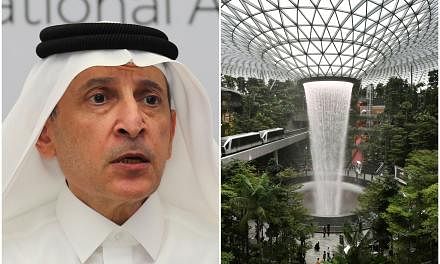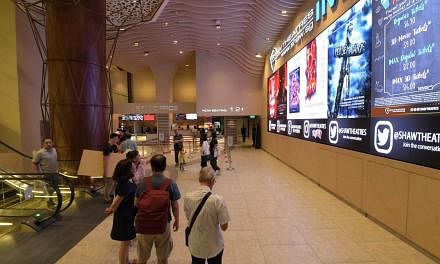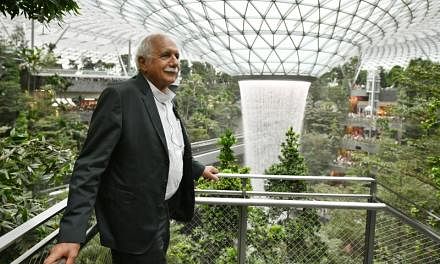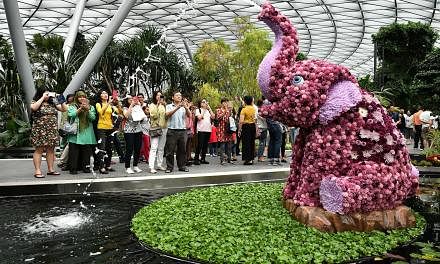Singapore expects to spend several billion dollars over the next few decades to upgrade Changi Airport's air traffic management system and introduce other enhancements to ensure a high level of safety and efficiency.
Speaking at an industry conference in Beijing on Thursday (May 16), Transport Minister Khaw Boon Wan said that the current air traffic management system, which costs over $300 million, was commissioned in 2013.
"We have started developing its next generation in order to avoid obsolescence," he said.
The upgrades are important for safeguarding aviation safety as traffic numbers continue to grow, he said at the China Aviation Development Forum.
"To manage increasingly crowded and complex airspaces, heavy investment in state-of-the-art technologies and systems, as well as investments in continuous training and upskilling, are critical."
He added: "Some commentators think that managing airspace is a viable business venture, but they are wrong. Fees by airlines barely cover the high cost of managing airspace properly."
Singapore, which manages air traffic in one of the busiest and most complex blocks of airspace in the world, invests heavily in air traffic management capabilities.
Apart from investing in hardware, Singapore also focuses on the recruitment and training of air traffic controllers.
The Civil Aviation Authority of Singapore currently has about 450 air traffic control officers. It is looking to increase the number to about 700 by 2030.
A new Aerodrome Simulator recently launched at the Singapore Aviation Academy allows instructors to simulate unplanned situations realistically to train controllers to handle difficult situations, honing their air traffic control techniques.
Mr Khaw said: "We also work with ICAO (International Civil Aviation Organisation) to make such training courses available to aviation professionals in other ICAO member states. We are mindful that safer skies ultimately benefit all."
It is also important to increase the operational efficiency of airspace management.
"Air traffic management today is largely fragmented. This results in inefficiencies, longer flight times, and higher costs for airlines," he noted.
To fully realise the benefits of air traffic growth, governments should take the lead in integrating airspace and optimising its use, according to the minister.
In South-east Asia, countries have adopted a vision of a seamless Asean Sky - a seamless block of airspaces with harmonised and interoperable procedures and operations.
When fully implemented, the region can expect to see a multi-fold increase in airspace capacity, cost reductions, fewer delays, and enhanced safety of air traffic management, Mr Khaw said.
"It is a wonderful vision with great benefits for all... It will, however, require governments to take an enlightened win-win approach, grounded on mutual trust. It will take time to realise such a vision. I am confident that it will happen in due course."
The minister added that the crowded skies will increase the complexity of airspace management, and this will place great stress on air navigation service providers.
"As transport ministers and regulators, our responsibility is to help preserve the long-term sustainability of civil aviation... Even as we enjoy the benefits of safety and convenience of air travel, we should remain vigilant, anticipate potential risks, and implement risk mitigating measures," he said.













